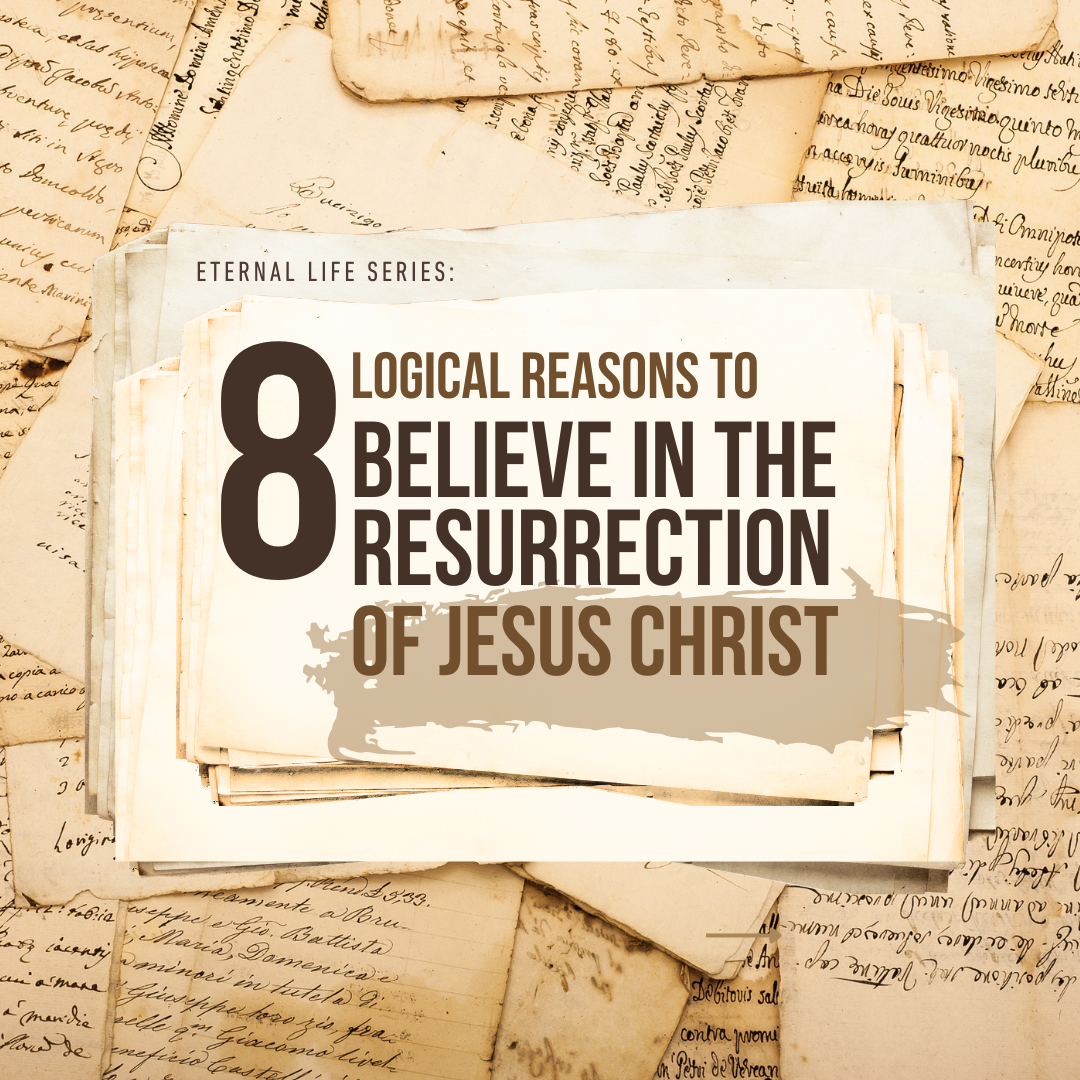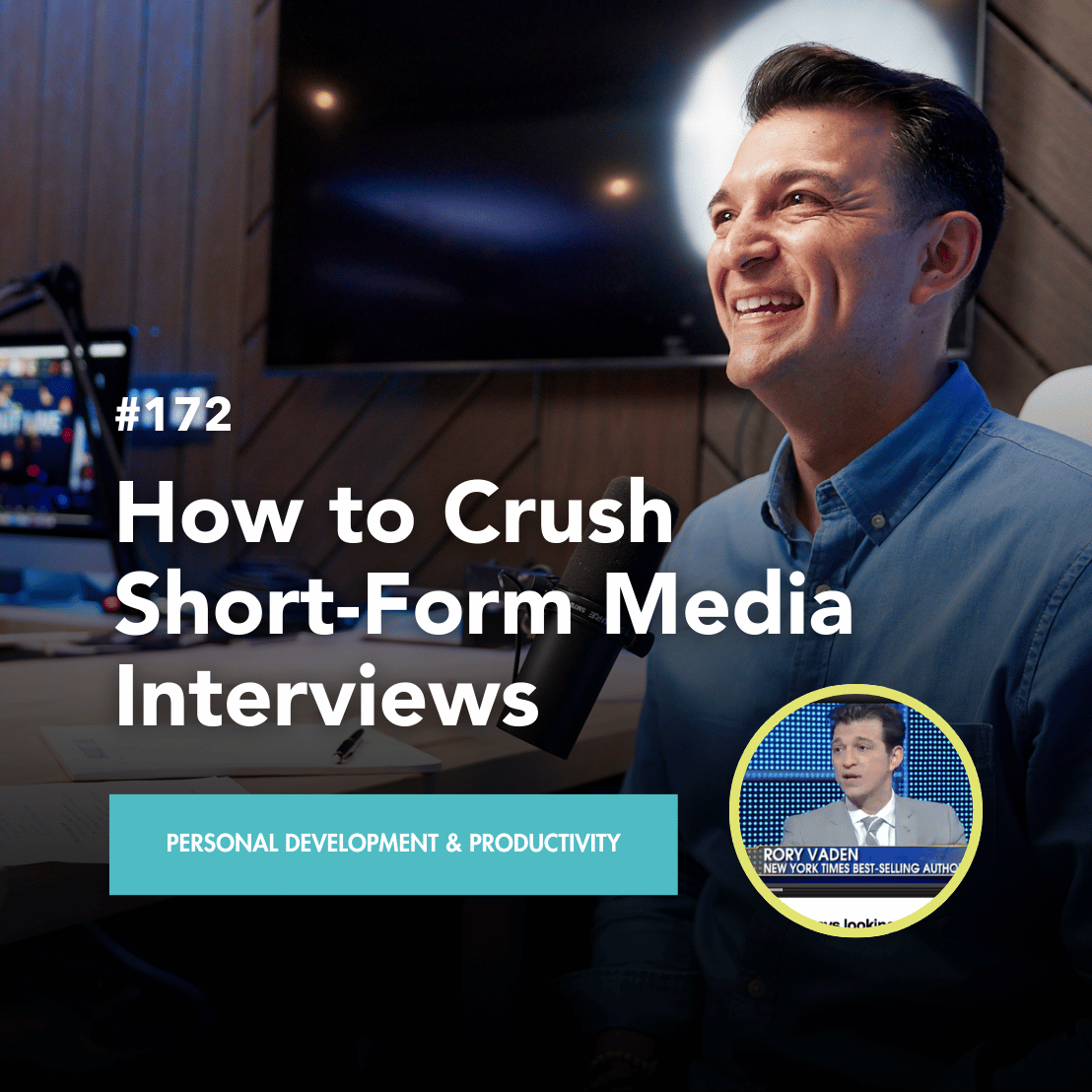I had a DREAM job during my summers in college: door-to-door sales.
Imagine waking up and getting punched in the face again and again and again — that’s what it was like.
One rainy day, after a horrible encounter with a colony of fire ants and some particularly curmudgeon residents, I gave up.
I wanted to move home and leave my collegiate goals behind.
And then a friend told me this: “let go and let God.”
At first I wasn’t sure something so basic could make a difference, but I decided to give it a try.
I repeated that phrase to myself all summer: “Let go and let God.
Let go and let God.”
I clung to it like a lifeline.
By the end of that summer something had shifted in me.
It was the first time I emotionally connected with Jesus.
But then came the logical battle.
The skeptic in me struggled to comprehend the idea of a man rising from the dead.
It seemed insane!
So I went searching for evidence, and what I discovered changed everything.
Facts that Every Intelligent Jesus Skeptic Should Know
Many people think that if you struggle with accepting Jesus, it’s because you lack faith.
I don’t see it that way.
I believe that if you struggle to accept Jesus, it’s because you lack research.
Once you uncover the facts, it’ll take more faith NOT to believe in Jesus than to believe in Him.
Here’s what I mean.
The Historical Jesus
One of the first books that made a significant impact on my faith journey was The Verdict of History by Gary Habermas.
It revealed that there are 39 ancient sources that document the life of Jesus—sources beyond just the Bible.
We’re talking about ancient historians and writers who had nothing to gain by mentioning Jesus, and yet they did.
We know Jesus was real, and there are over 100 facts about his life that have been corroborated by these sources.
Even seven secular ancient documents reference mysterious powers and miracles attributed to him.
Another book that rocked my world was The Case for Christ by Lee Strobel.
Strobel compared the historical evidence for Jesus to that of other historical figures.
For example, the Annals of Imperial Rome, written by Tacitus, is taken as historical fact, yet the earliest copy we have was recovered 734 years after it was written, and there’s only one copy.
Contrast that with the New Testament, where the earliest copies were found just 75 years after being written—and there are over 5,000 of them.
The sheer volume and proximity of these documents to the events they describe are unparalleled.
The Unbroken Record of Archaeology
Another key piece of evidence lies in archaeology.
The Bible references 32 countries, 54 cities, and 9 islands, making 95 references in total.
Not a single one of these references has ever been disproven by archaeology.
That kind of historical accuracy is staggering.
The Prophecies Fulfilled
I even went back to the Old Testament, which isn’t exactly light reading.
But I was fascinated by the prophecies—specifically, the ones about a forthcoming Messiah.
I personally verified at least 20 prophecies that Jesus’s life fulfills.
The odds of just eight of these prophecies being fulfilled by one person are one in 100 million billion.
That’s practically impossible odds.
And yet, they happened.
The Resurrection: The Crux of It All
Everything comes down to the resurrection.
As Paul said in 1 Corinthians 15, “If Christ has not been raised, our preaching is useless and so is your faith.”
The resurrection is the cornerstone of Christianity, and logically, it’s either the greatest truth or the greatest lie ever told.
Here are eight logical reasons to believe in the resurrection:
1. The Empty Tomb: No one has ever been able to produce the body of Jesus.
The tomb has always been empty.
The idea that his disciples stole his body is preposterous—they were hiding in fear, not plotting a heist.
2. Jesus Called His Shot: Jesus said he would rise from the dead, and he proved his power over death multiple times during his life.
When someone makes a claim like that, they’re either a lunatic or exactly who they say they are.
3. Eyewitness Accounts: There are numerous documented sightings of the resurrected Jesus, from Mary Magdalene to over 500 people at once.
These are eyewitness testimonies.
4. The Conversion of Skeptics: Some of the most powerful early Christians, like Paul and Jesus’s half-brother James, started as skeptics.
Their transformations were dramatic and enduring.
5. The Willingness of the Disciples to Die: People might die for something they believe to be true, but no one dies for something they know is a lie.
The disciples faced horrific deaths because they believed in the resurrection.
6. Changes in Jewish Culture: Jewish converts began practicing communion, stopped animal sacrifices, and accepted Jesus as the Messiah, which led to them being ostracized and persecuted.
These weren’t changes they took lightly.
7. The Spread of Christianity: Unlike other movements led by so-called messiahs, Christianity didn’t die with Jesus.
It spread like wildfire because people couldn’t stop talking about what they had witnessed.
8. The Survival of the Bible: The Bible is a collection of documents written by people who experienced these events firsthand.
Despite attempts to destroy it, the Bible has survived for thousands of years.
The Faith to Believe
When you put all the pieces together, it becomes clear that believing in Jesus isn’t a matter of blind faith.
It’s a decision based on overwhelming evidence.
In fact, it takes more faith to believe that none of it is true than to accept the facts as they are.
As I said up front: we don’t struggle from a lack of faith, we struggle from a lack of research.
But here’s the thing—once you find the evidence, once you let go of the need to control everything and just let God in, something amazing happens.
Faith becomes inevitable.
And that, my friends, is where I found myself.
Not just emotionally connected to Jesus, but logically, intellectually, and spiritually convinced of his miracles.
And now as a father, I feel a responsibility to share this message with my sons and anyone who’s willing to listen.
If you’re feeling called to dive deeper into your own faith journey, I encourage you to take the next step —whatever that may be.
Let go, let God, and let the evidence speak for itself.
Want to explore more? Check out the whole Eternal Life Series here!

















